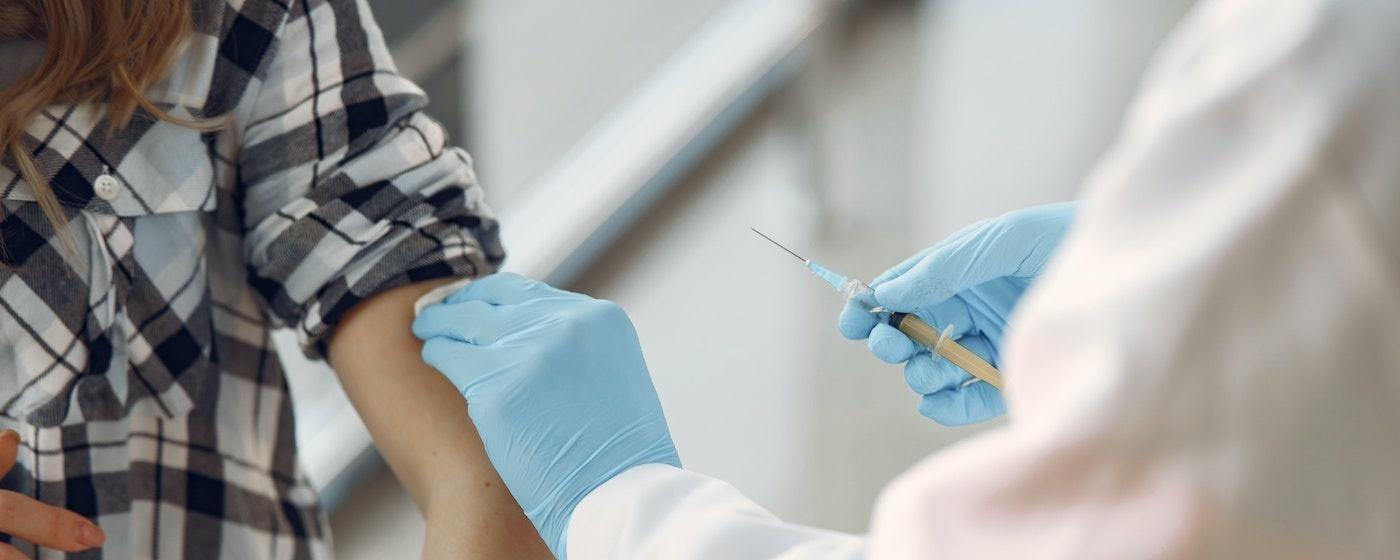Will Vaccines Work Against COVID-19 Variants?


This week, officials reported the first case of a mutated variant of the coronavirus in Mecklenburg County. It’s a more transmissible variant called B-117 and it’s currently ripping through the United Kingdom and parts of the US.
Though concerning, the news isn’t a surprise to public health experts. And their message is the same drum beat we’ve heard for about a year now: hand-washing, mask-wearing, social distancing and staying home.
Short answer? Yes, but with varying success, said Tim Sheahan, Ph.D., a virologist with the UNC Gillings School of Global Public Health.
That’s because the current vaccines target the virus’ spike proteins, the part of the virus that enables it to latch to human cells and spread.
“The vaccine targets multiple regions of the spike,” said Sheahan. “It’s a multi-pronged attack.”
Recent mutations gave variants an advantage by changing some of those spike proteins, making them better at spreading. However, once vaccinated, your antibodies still recognize the the other, unchanged spike proteins as villains.
However, one worrisome strain of the virus in South Africa. may be better at eluding vaccine protection, sometimes bringing the vaccine efficacy rate down to 50 percent. If this strain gets a foothold globally, it could slow down our ability to get life back to normal.
Fortunately manufacturers are developing a booster to adapt to the virus’ changes.
“The coronavirus vaccines have to evolve in step with the virus, like the flu vaccine,” said Sheahan. “But unlike the flu, the coronavirus doesn’t make dramatic changes as quickly.”
Drugs like Remdesivir, which Sheahan helped develop, should also remain effective at slowing the virus’ spread once someone is infected.
These drugs don’t attack the spike protein. Instead, they target the virus’ ability to replicate its genome—an essential function that doesn’t mutate easily. Hospitalized patients with the virus still may see some benefit to these drugs, like a shortened stay.
Nope! “People freak out about ‘mutant viruses’ but this is normal virus behavior,” said Sheahan.
The coronavirus has already mutated thousands of times since it emerged globally, and for the most part those mutations haven't been a big deal. Viruses mutate as they replicate. They make mistakes while copying their genome and sometimes those mistakes cause them to die. Other times, they give them an advantage, like being able to spread more easily.
Natural selection gives those viruses the upper hand, but because the infrastructure for developing vaccines is already in place, companies can respond by updating their vaccines quickly.
Public health experts like Dr. Mandy Cohen of North Carolina's Department of Health and Human Services said it’s crucial to stay vigilant, especially as the UK strain can spread 1.5 times more easily. With widespread shortages of the vaccine and high demand, getting a vaccine may still be months away for many NC residents. Our best option is to stick to the same ol' plan as before: stay home, wash your hands, wear a mask and watch Netflix. Who's watching Survivor again?